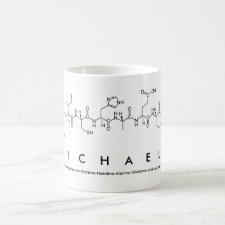
Authors: Markowitz MA, Kust PR, Klaehn J, Deng G, Gaber BP
Article Title: Surface-imprinted silica particles: the effects of added organosilanes on catalytic activity.
Publication date: 2001
Journal: Analytica Chimica Acta
Volume: 435
Issue: (1)
Page numbers: 177-185.
DOI: 10.1016/S0003-2670(00)01246-0
Abstract: Silicate surfaces were molecularly imprinted with a surfactant derivative of an alpha -chymotrypsin transition state analog (TSA) during particle formation in a water-in-oil microemulsion. The organosilanes N-(3-aminoethylaminomethyl)- phenyltrimetho-xysilane (PEDA), carboxyethylsilanetriol (CTES), and N-(3-triethoxysilylpropyl)-4,5-dihydroimidazole (IPTES) were added along with tetraethoxysilane (TEOS) to imprint the chemical functionality of the imprint molecule. Surfaces imprinted with N-alpha -decyl-D-phenylalanine-2-aminopyridine enantioselectively catalyzed the hydrolysis of benzoyl-L- arginine-p-nitroanilide (L-BAPNA). No hydrolysis of D-BAPNA was observed. The catalytic activity of surface-imprinted particles formed with TEOS and PEDA was significantly greater than that of surface-imprinted particles formed with TEOS and IPTES. Particles formed with added 10 mol% (total silica) of PEDA hydrolyzed DL-BAPNA at a rate equivalent to that of surface- imprinted particles formed with the mixture of 5 wt% (total silica) of PEDA, CTES, and IPTES suggesting a cooperative effect with the organosilane mixture that promoted catalytic activity. (C) 2001 Elsevier Science B.V. All rights reserved



Join the Society for Molecular Imprinting

New items RSS feed
Sign-up for e-mail updates:
Choose between receiving an occasional newsletter or more frequent e-mail alerts.
Click here to go to the sign-up page.
Is your name elemental or peptidic? Enter your name and find out by clicking either of the buttons below!
Other products you may like:
 MIPdatabase
MIPdatabase









